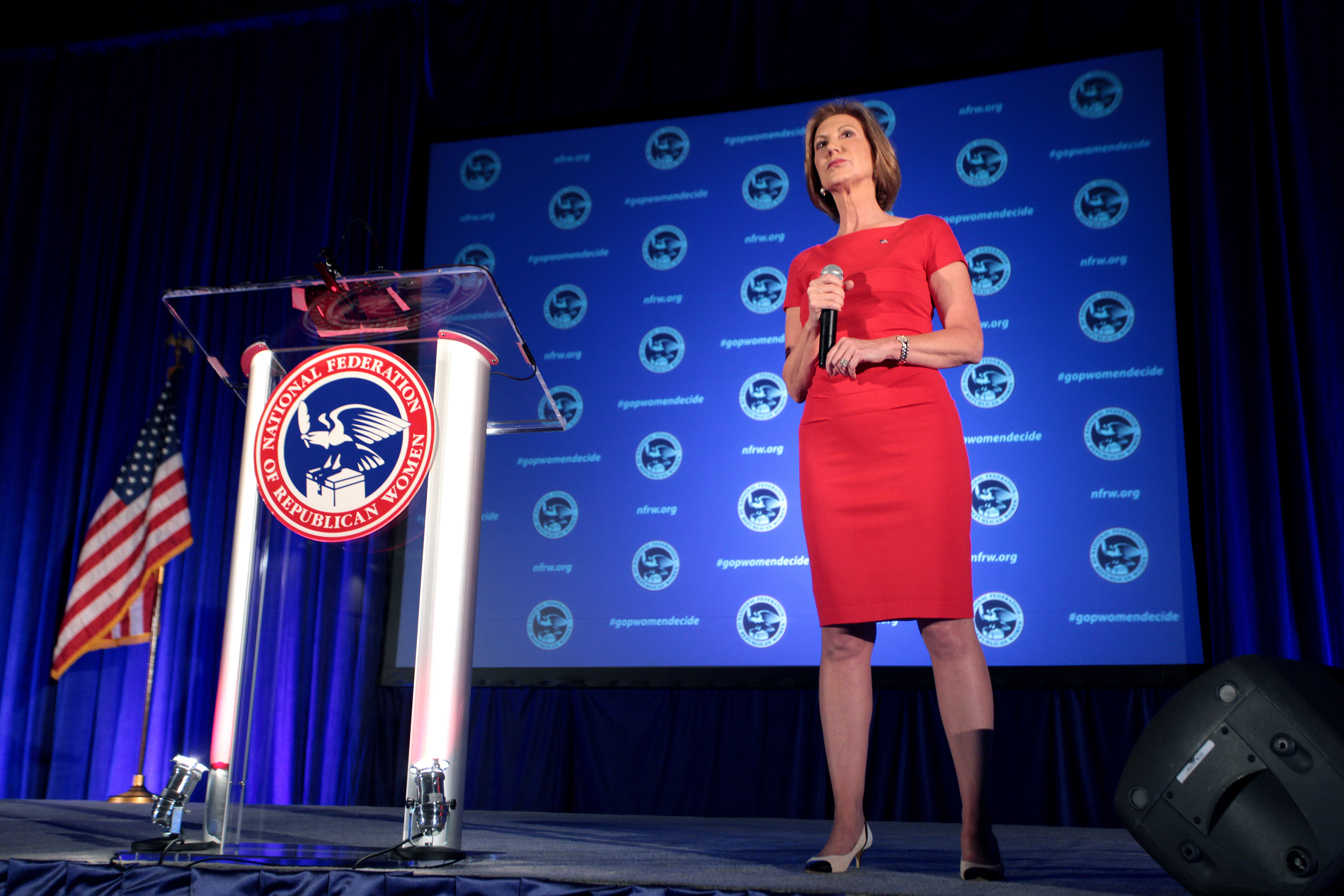Carly Fiorina’s position as a conservative woman and relative outsider in the Republican presidential primary offered the GOP an enticing opportunity to combat the Democratic Party’s message on social issues. Losing Fiorina so early in the race may prove particularly hurtful in the general election against Hillary Clinton, the likely Democratic nominee. Democrats have claimed that the GOP launched a war against women — Fiorina’s presence in the race served as a counterweight to this idea and a challenge to the principle that Clinton represents the zenith of female success in politics.
Fiorina is foremost a businesswoman; her demeanor is cold and professional. In a field crowded with a reality TV star, a Bush, and numerous governors and senators with entertaining personalities, her somewhat stoic demeanor neither captured enough of America’s fascination nor harnessed enough of the anger many fierce conservatives express. Perhaps her campaign was too serious, and the media found no use for it.
She first surged after the undercard GOP debate on August 8, where known quantities Donald Trump and Jeb Bush were not present, allowing her to monopolize the airtime. When she was not included in the last February 6 debate on ABC after finishing ahead of New Jersey Governor Chris Christie in Iowa (who was included), she stole the spotlight in her efforts to reveal the unfairness in media coverage. However, most of her notoriety in the media came after her attacks on Secretary Clinton — the sound bite repeatedly played on various networks after the January 14 debate on Fox Business Network. These few media blitzes had significant effects on her poll numbers. However, her attacks against Clinton didn’t afford her enough media attention or support from the Republican National Committee to save her campaign.
It is unfortunate that Fiorina failed to gain traction as a legitimate candidate, given the comparison of her profile side-by-side with the Democratic frontrunner. The antithesis to Secretary Clinton in all aspects except her womanhood, Fiorina tried to take aim at her numerous times. While Fiorina, through her gender, had the potential to offer a more nuanced position to her party’s platform and a defense against the alleged “War on Women,” she shied away from explicitly emphasizing this appeal. Fiorina has made clear that her gender is not anything to be applauded. While the moral rationale is evident, this stance potentially undermined a big advantage she may have held over the Republican field. After dropping out on Wednesday, she proclaimed, “Do not listen to anyone who says you have to vote a certain way because you’re a woman.” This stance could have helped the Republicans close the stubbornly persistent gender gap that has plagued elections since the 1980s.
As social liberalism gains support, Fiorina backed the Republican Party’s socially conservative stance. Fiorina actively called for the defunding of Planned Parenthood. The pro-life candidate served as a signal to women that the Republican Party is on their side. Her role as a woman with pro-life views could have been a strong selling point for the party, but attention in this area was stifled. Clinton’s women’s rights, pro-choice platform could have face a strong challenge from Fiorina’s female opposition.
In October, Clinton declared, “finally fathers will be able to say to their daughters, you too can grow up to be president,” assuming she were elected. Fiorina, however, argued that people will vote for her not because she is a woman, but because she is a qualified leader.
As a relative political outsider, Fiorina has been held to high levels of scrutiny and accountability. This would seem to place her on a pedestal above Secretary Clinton in the minds of conservatives, whom time and time again berate Clinton for allegedly mishandling the aftermath of the September 11, 2012 attacks in Libya. Fiorina often contrasted this with an anecdote about her monthly board meetings as CEO at Hewlett-Packard, during which her honesty was legally binding.
In all, however, the multitude of darts flung at Clinton were not enough for Fiorina to survive the tough Republican nomination fight. The suspension of her campaign opens up a block of voters for more moderate candidates such as Bush, John Kasich, and especially Marco Rubio, as they both garner support from young voters. The dispersal of the anti-establishment vote, though, could ultimately benefit Trump, seen as dead weight for the party if he secures the nomination. In the general election, this may ultimately favor the Democrats. Fiorina’s role as a clever critic of Clinton as well as her position as a strong conservative woman represented a unique commodity in the Republican race, and her campaign’s suspension could ultimately doom the GOP in November.
